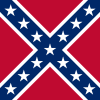

| Online: | |
| Visits: | |
| Stories: |

| Story Views | |
| Now: | |
| Last Hour: | |
| Last 24 Hours: | |
| Total: | |
English America In 1700
This is endlessly fascinating to me:
“Establishment of these new American colonies during the last half of the seventeenth century added greatly to the cultural diversity of the English overseas dominions. In addition to Ireland, there were by 1700 six distinctive cultural regions in colonial Anglo-America – the Chesapeake; Bermuda and the similar colony of the Bahamas, permanently established in 1718; New England, including Nova Scotia after it was acquired from the French in 1713; the West Indian colonies; the Middle Colonies; and the Lower South, which included Georgia after its founding in 1732. Within each of these cultural regions, moreover there was significant local diversity which, for instance, distinguished Rhode Island from Massachusetts and Connecticut, Barbados from Jamaica, and New York from Pennsylvania.
Notwithstanding these important regional and local differences, there was also a single broad fault line that, at least during their early histories, divided these colonies into two sharply different categories. First, there was puritan New England, by which I prefer principally to Massachusetts, Connecticut, New Haven, and some of the early New Hampshire towns. With their strong religious orientation, communal impulses, perfectionist aspirations, sense of chosenness, belief in social and religious exclusivity and uniformity, suspicion of the modern market world, and modest economic opportunity, these contained and closely knit settlements constituted what Richard S. Dunn has correctly characterized as “a highly distinctive society.” They represented a deep commitment to an effort to recover a stable, harmonious, Christian, and traditional world which, if it had ever existed, was rapidly disappearing from England. Only such an intense commitment, along with the absence of strong and immediate environmental pressures to relinquish it, could, as John M. Murrin has observed, have overcome the powerful impulses, “obvious in all the secular colonial experiments of the period, to scatter through the wilderness in search of something better.”
During the early decades of settlement, in every one of the English colonies outside of New England except possibly for some communities in Ulster and to a large extent even in Rhode Island and New Hampshire, settlement patterns, sociocultural configurations, and individual priorities were shaped by the economic opportunities the colonists found, created, and manipulated in their new environments and by the ambitions and aspirations they thereby unleashed. Invariably, the societies they created tended to be individualistic, without much cohesion, permissive, secular, exploitative, differentiated, conflicted, even contingent. To one degree or another, they all represented a logical, if still greatly simplified, extension – and not in any sense a rejection – of the dynamic, fluctuating and increasingly “modern” world the settlers had known in England and upon which they mostly remained heavily dependent for capital, markets, finished goods, and manpower. …
Far from being normative then, at least in their earliest decades, were, in Nicholas Canny’s words, “totally exceptional by [British] colonial standards” and represented a deviant strain in English colonial history of which there were no other comparable examples except perhaps for a few villages in Ulster.”

In addition to Ulster in Ireland, there were six cultural hearths in the English America in 1700: New England, the Chesapeake, the West Indies, the Lower South, the Middle Colonies and the Atlantic Islands. It turns out that New England was unlike the all the other colonies which were more similar to the Chesapeake. Even New York and Pennsylvania were more like Virginia at the time.
The saints of New England thought of themselves as “exceptional.” They were perfectionists. The Puritan elect had a divine mission which required them to closely police the behavior of their neighbors. They were a “beacon” to the Old World. Their social order was based on a covenant with God. This was totally unlike the conditions in any other colony except for the “Holy Experiment” of the Quakers in Pennsylvania which was eventually overrun by the Germans and Scots-Irish.
It was the South which was in the “mainstream” of British colonial development. Normal Americans came here to improve their condition in life, not to create a religious utopia.
Note: Perhaps this is why President Trump resonated so strongly outside of the East which is less interested in economic opportunity than it is obsessed with condemning and stamping out the sins of racism, sexism, nativism, xenophobia, Islamophobia, homophobia and white privilege?
Source: http://www.occidentaldissent.com/2017/03/25/english-america-in-1700/


